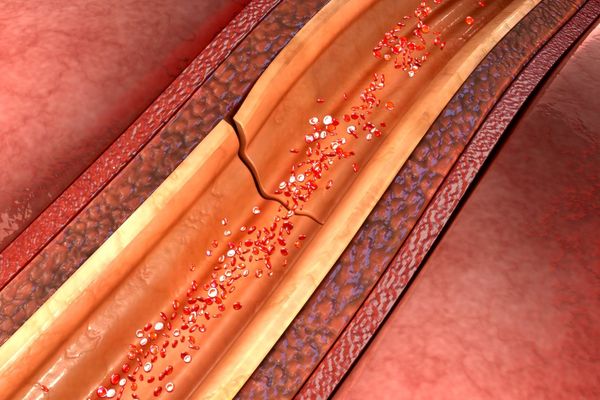We all know that fruits and vegetables are great for heart health, providing essential vitamins, minerals and antioxidants, with few calories. But sometimes we crave favorites like burgers or dessert.
The good news is it's possible to occasionally indulge in treats like these while staying in line with your heart-healthy diet if you follow some healthy guidelines. Here are five foods that you can feel good about eating.
1. Grass-fed beef
While a fast-food burger is definitely not in the cards for people looking to improve their heart health, there are certain types of beef that may be good for cardiovascular wellness. At the market, look for beef labeled "grass-fed," because this type of meat is typically lower in fat, contains omega-3 fatty acids and potentially even antioxidants (though you'll still get a lot more omega-3s from fish). This is likely because grass is a more natural option for cows, compared to corn and grain, the typical diet at industrial farms. Therefore, the animals are healthier than their grain-fed counterparts, containing less fat and more beneficial nutrients. Look for lean cuts like eye of round roast or steak, sirloin tip, top sirloin steak and top or bottom round roast and stead. And remember to control your portion size. A healthy serving of meat, poultry or fish is 2 to 3 ounces, about the size of a deck of cards.
2. Vegetable oils
Your body needs fat to function. So, don't toss out those perfectly good bottles of oil, particularly olive and canola. These oils are typically devoid of trans fats—which should always be avoided—and rich in beneficial mono- and polyunsaturated fats. Mixing a tablespoon of one of these oils with a half tablespoon of vinegar or lemon juice, plus a dash of salt and pepper, is a quick, healthy way to dress all those fruits and veggies, adding a boost of flavor and nutrients.
3. Bread
Yes, you can still have your toast in the morning and perhaps even a cookie at night, with one caveat: They should be made with 100 percent whole grains. Choosing these over refined counterparts is one of the simplest and smartest moves you can make for your heart health. Whole grains are packed with fiber, protein, amino acids, vitamins and minerals, while white flour leaves much to be desired. If you just can't ditch the fluffy white stuff, try choosing products made with a blend of whole and refined grains to ease yourself into the transition. Also, make sure to look for products without added sugars.
4. Soup
The majority of soups on supermarket shelves are loaded with sodium, and it's well-known that consuming too much salt can sabotage blood pressure levels. But the good thing about buying packaged foods is that they all feature nutrition labels where you can compare levels of sodium, saturated fats, cholesterol and other nutrients. Low-sodium soup is a good lunch option because all you need to do is heat it up—and it's probably much lower in calories than your usual sandwich. When you have time to cook, make up a big batch of healthy soup and freeze individual portions for quick lunches.
5. Chocolate
We're not giving you permission to load up on candy bars here, but you should know that dark chocolate contains some potentially potent heart-protectors. Cocoa has been shown to contain antioxidants that may promote cardiovascular well-being, the same kinds that are found in red wine and fruits. However, it's important to be smart about this and choose chocolate that is made of mostly cocoa solids (look for over 70 percent), and keep consumption moderate.
Heart-Healthy Shopping List
- Fresh fruits and vegetables
- Frozen fruits and vegetables (choose ones that are free of sauces, salt, fat or preservatives)
- Lean, grass-fed beef
- Chicken breasts
- Fish
- Low-fat cheese and yogurt (watch the sugar content on that yogurt)
- Whole-grain bread
- Whole-grain cereal, crackers or pasta
- Olive oil or canola oil
- Trans fat-free margarine
- Low-sodium canned soup
- Dark chocolate
- Almonds, walnuts or other nuts and seeds






